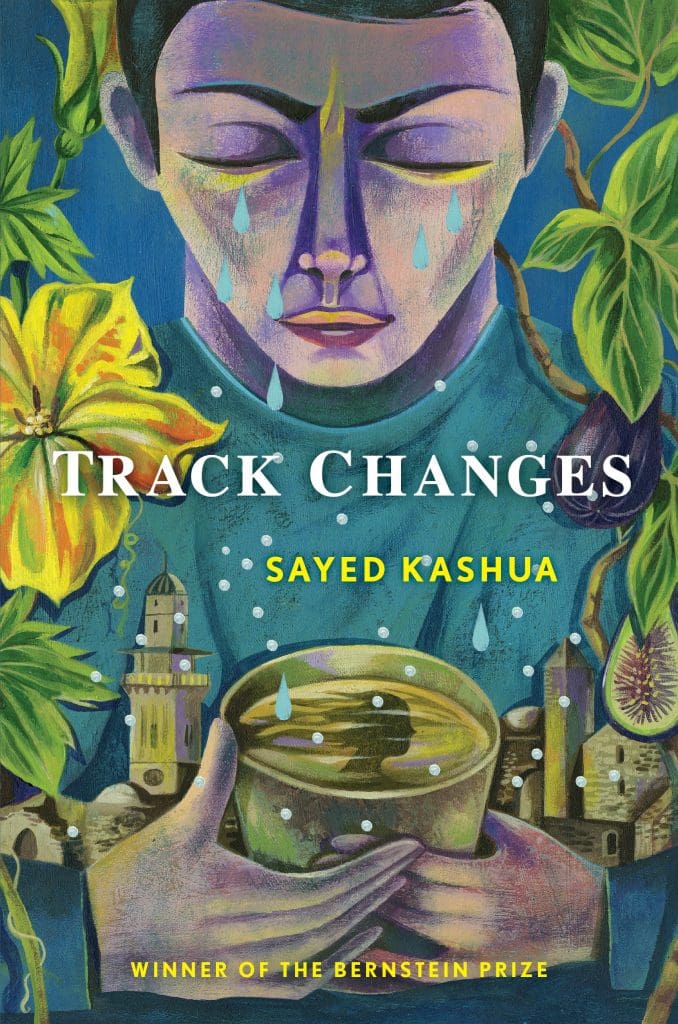Sayed Kashua’s fourth novel, Track Changes (240 pages; Grove Press; translated by Mitch Ginsburg), is a haunting exploration of the unplaceable loss that reverberates through one man’s memory. Saeed, an Arab-Israeli man hailing from the small Palestinian village of Tira, has long maintained a passion for writing, and he develops a career of ghost-authoring other people’s life stories. As he learns to craft memoirs, drawing out stories and observations from taped interviews with his subjects, he finds that his true power lies in editing. At first, he transcribes the stories precisely as they are relayed to him, but he comes to realize he can distort the reality of the experiences, lending them the best parts of his own memories. He finds he can do so with his changes going unnoticed—or at least unmentioned.
The novel opens long after Saeed has learned this trick, during his first visit to Tira since his hasty departure fourteen years earlier. He’s long desired to return home over the years, but always feared to go. But he leaves behind his wife and two kids in Illinois to visit his ailing father, who has sent for him upon learning the severity of his health.
Despite his family’s reassurances that “[t]he village has changed,” very little of that applies to Saeed, and it seems that little of it ever will. He is someone who attempts to flee from conflict, but always fails in the endeavor—essentially running in place and stewing in the hypotheticals of worst possible outcomes.
Saeed is not always an inviting narrator. He often withholds the most essential parts of his story, sprinkling them in fragments throughout the novel, sometimes without context. He is unabashadley self-pitying and self-loathing, and on the whole, not willing to put forth any effort to improve his situation. This stillness, as one might suspect, inevitably results in stagnation.
But for all his faults, he means well. He wants a good life and the best for his family, even though he remains emotionally distant from them. What holds him back is his pervasive belief that the best is beyond his reach.
With its focus on storytelling, Track Changes reads as a love letter of sorts to the imagination and the act of writing:
The written memory must be made beautiful, and if I felt that the material I was given during an interview might tarnish the image of the protagonist of the memoir in the eyes of his or her readers, I edited their dreams, erased and added sentences, and even, as necessary, invented new dreams and new thoughts to accompany them in bed.
At the same time, there is undoubtedly a warning attached, the suggestion that there is a price to be paid for our fiction. Saeed admits that “[w]ith every contribution from my memory something in me faded.” And as the novel progresses, Saeed’s fictional memories become increasingly intertwined with his authentic ones, confusing the narrative of his life and robbing him of his appreciation for it.
Part of that narrative is a story he wrote in his youth—a story that upended the lives of those he loved most. What exactly this haunting story was and the consequences of it are largely withheld from the reader for most of the novel, but over time it becomes clear this was why he left Tira, robbing him of any tangible notion of “home.” The resulting lack of a strong cultural identity only isolates Saeed further, saddling him with a pervasive sense of alienation.
Track Changes is a dark read, one that offers a detailed look at a man stretched too thin and the demons that weigh him down. But what Kashua brings to the page is well worth experiencing. The novel’s structure and language bring gut-wrenching beauty and unimagined complexity to a life that may have otherwise seemed stripped of it.

